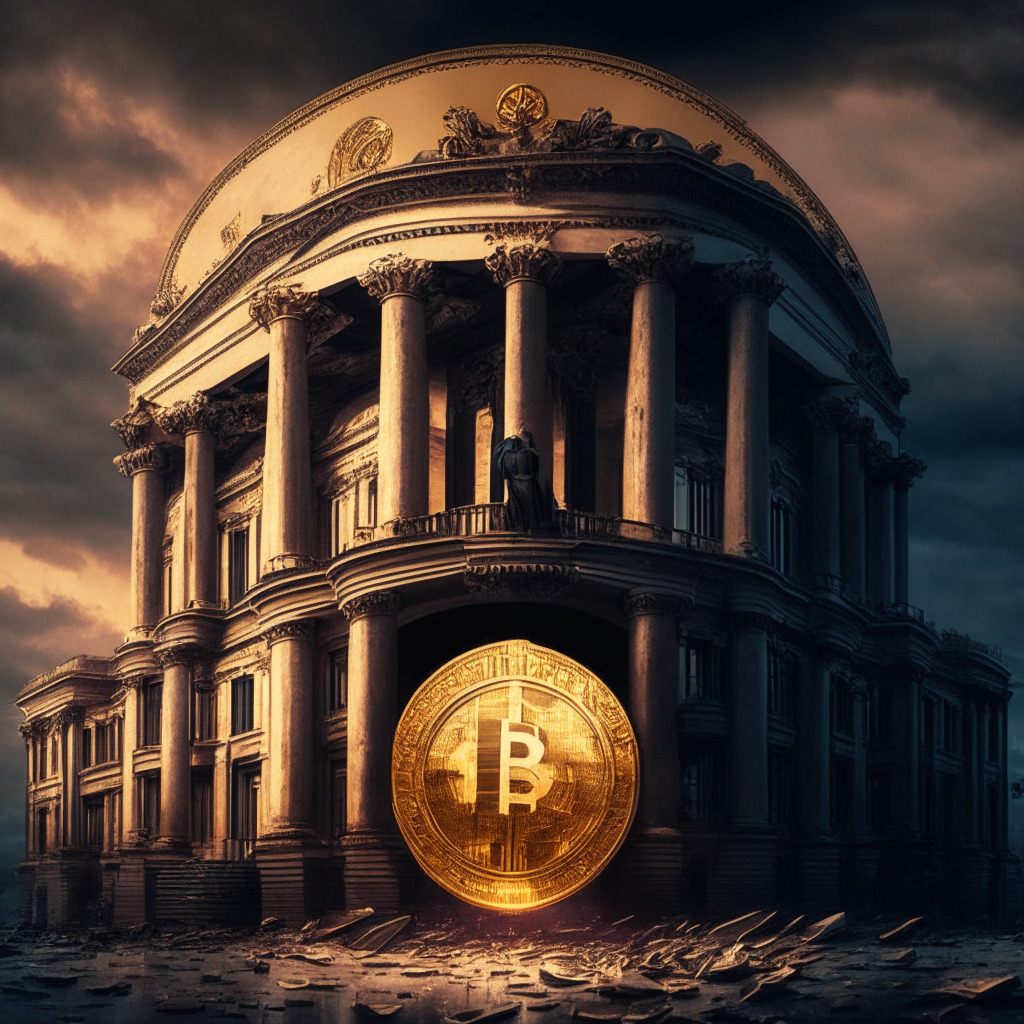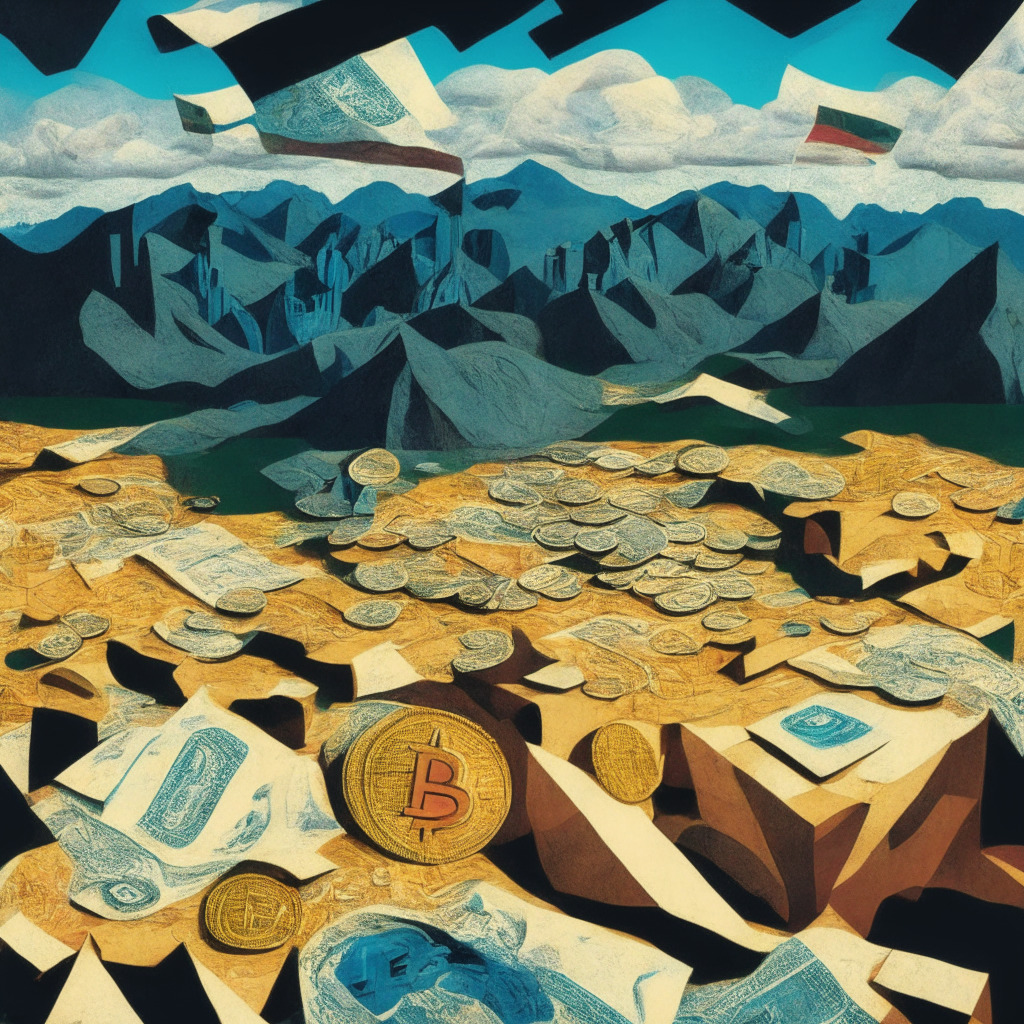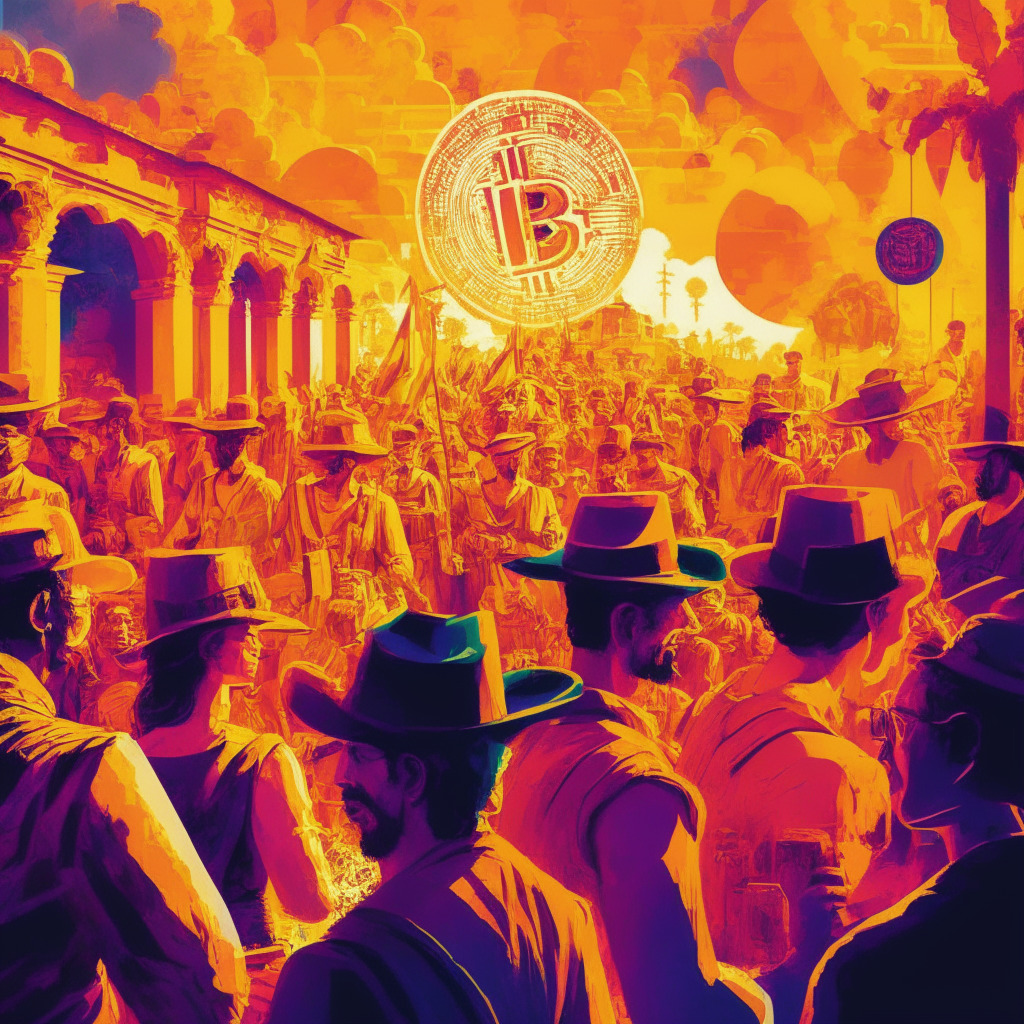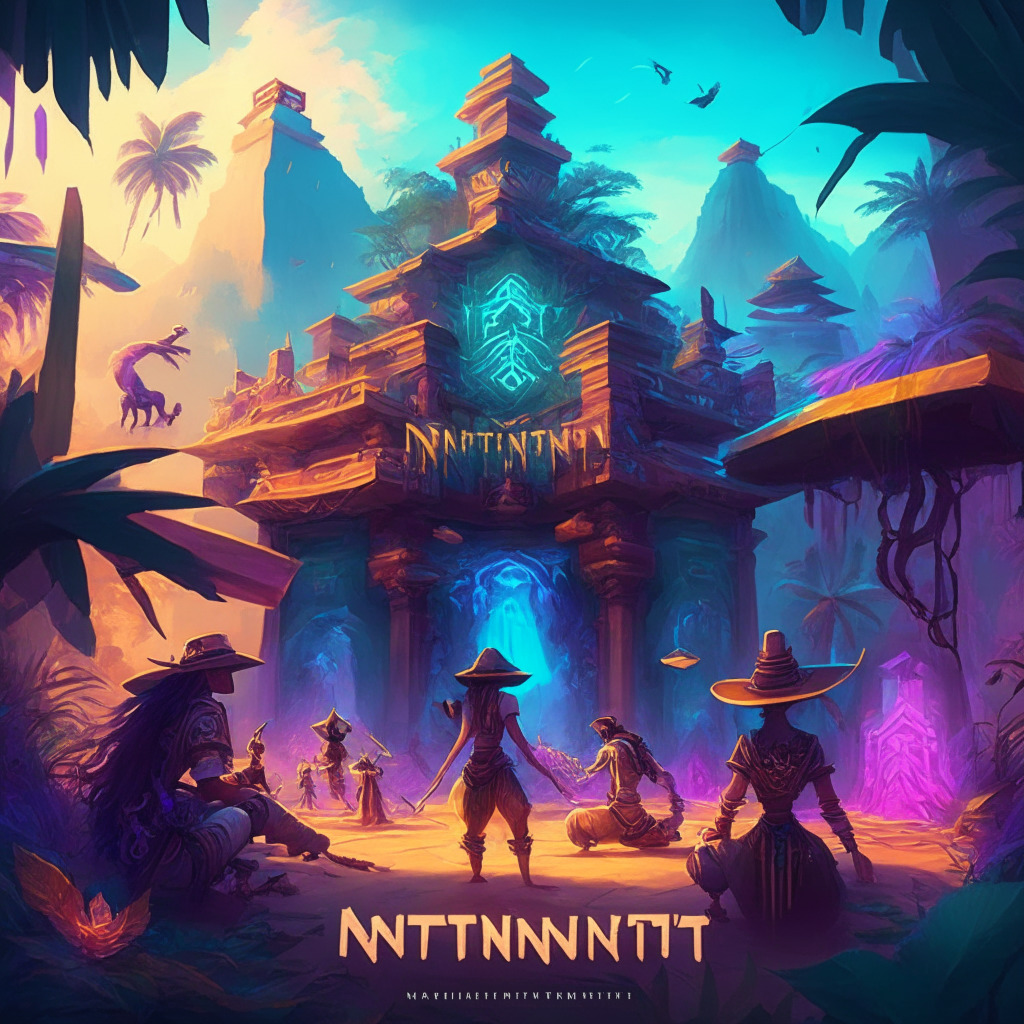“In an unexpected development, Venezuela has extended the reorganization shutdown of its crypto regulatory body, Sunacrip, due to a corruption scandal. This has left the nation’s crypto market unstable, highlighting the crucial role of transparent and responsible regulatory institutions in maintaining market stability and investor confidence.”
Search Results for: Venezuela
Unearthing Hidden Bitcoin Mines in Venezuelan Prisons: Economic Boon or Bane?
In a recent Venezuelan police operation, undisclosed Bitcoin mining activities were discovered within a notorious prison. This reflects the growing popularity of crypto mining in the country, despite authorities’ efforts to curb these activities due to their high power demand and resultant socio-economic complexities. The event highlights the conflict between security, sustainability, and economic growth in the crypto realm.
Binance Quietly Removes Banco de Venezuela: Blockchain Freedom Versus Economic Sanctions
Cryptocurrency exchange Binance has silently removed Banco de Venezuela from its P2P service list, mirroring U.S Treasury-imposed financial sanctions. The move raises concerns among Venezuelan crypto enthusiasts, notably because the bank plays a crucial role in Venezuela’s digital currency ecosystem. Despite the silent removal, users can reportedly circumnavigate the ban due to the P2P nature of the services.
Sanction Enforced: Binance Removes Banco de Venezuela from P2P Services
“In a move to enforce international financial sanctions, Binance, the world’s largest crypto exchange, has eliminated a payment method attached to Banco de Venezuela from its P2P trading service. This action reflects the limited room for maneuver that global crypto exchanges have amidst international sanctions and raises questions about the extent to which the promises of cryptocurrencies hold true in a regulated market.”
The Downfall of Petro: A Tale of Venezuela’s State-Backed Cryptocurrency
“Petro, Venezuela’s state-backed crypto, is facing a downfall after a promising start. The state agency pioneering it has disbanded following a corruption crackdown, halting development work. International sanctions and misuse by corrupt officials have expedited its decline, leaving its future looking bleak.”
Argentina’s Dollarization Debate, Mysterious Bitcoin City Plans, and Venezuelan Crypto Layoffs: Latin America’s Crypto Chronicles
The debate on Argentina’s dollarization is gaining traction as prominent economist Steve Hanke calls for […]
Rescuing Argentina’s Economy: Central Bank Digital Currency vs. Bitcoin Adoption
Argentina’s second-leading presidential candidate, Sergio Massa, plans to launch a national central bank digital currency (CBDC) if elected, aiming to combat the country’s escalating inflation. Massa believes that a strong digital economy, supported by a CBDC, offers a better solution than relying on the U.S. dollar, a strategy that is in direct contrast with competitor Javier Milei, who favours a pro-Bitcoin, anti-central bank approach.
Taiwan’s Firm Stance toward VASPs: Stricter Crypto Regulation versus Industry Growth Potential
Taiwan’s Financial Supervisory Commission (FSC) is implementing new regulations to improve safeguards for crypto investors. These regulations seek to control virtual asset service providers (VASPs) like Binance, Kraken, and ByBit, emphasizing asset safety, self-regulation, and legal operation in Taiwan. This overhaul coincides with local exchanges forming a regulatory body, and precedes FSC’s expected 2023 takeover as Taiwan’s primary crypto regulator.
Weekend Crypto Arena: Security Breaches, Executive Reshuffles and Surprising Discoveries
“Over the weekend, OpenSea faced a security breach warning, pointing to the importance of strong protective measures in cryptocurrency trading. Simultaneously, Bitcoin mining machines were discovered in a shocking police raid in Venezuela. Meanwhile, cryptocurrency platform Mixin Network reported a major attack with an estimated loss of $200M, underscoring the high-risk nature of crypto trading. Lastly, Coinbase secured Anti-Money Laundering compliance registration from Spain’s central bank, indicating growth possibilities in Europe.”
Navigating Regulatory Shifts: Binance’s Shift, Impact Theory’s Legal Woes, and Emerging Blockchain Innovations
“Binance’s Belgian users can now dodge local regulations by accessing the platform via its Polish branch. This resourceful solution permitted them to continue operations within the European Economic Area after the parent company ceased. However, due diligence is important. On the other hand, Venezuela’s key banking institution has been removed from Binance’s P2P payment options due to alleged international financial sanctions.”
BRICS Digital Currency Debate: The Future of Global Trade or Merely a Fantasy?
Experts from Brazil anticipate BRICS summit discussions on a potential digital fiat currency, with workgroups likely being established for the initiative. A collective digital currency could potentially replace the US dollar in trade deals among BRICS nations despite sceptical voices. Individual nations within the BRICS alliance, including China, Russia, and Brazil, have already initiated their own Central Bank Digital Currency (CBDC) projects.
Ledger’s Ambitious Expansion into Latin America: A Leap of Foresight or a Gamble?
“French crypto hardware wallet creator, Ledger, is expanding into Latin America, promising to strengthen its supply chain. With crypto adoption surging, Ledger’s move could greatly benefit potential customers by providing easier product access. Plans include collaboration with a US-based logistics firm to widen the distribution network across the region.”
Navigating Crypto Regulation: Rpay’s License Triumph and its Ramifications for Global Crypto Trade
“Stablecoin wallet Rpay secured a key license from the U.S. Office of Foreign Asset Control (OFAC), allowing operations in Venezuela. This indicates a potential shift in regulatory landscape despite crypto firms previously exiting due to complexities and in-house risk tolerance.”
Australian Activist Claims CCP Bitcoin Bounty on His Family: Exploring Crypto’s Role in State-Sponsored Intimidation
An Australian human rights activist claims the Chinese Communist Party (CCP) has put a $50,000 Bitcoin bounty on his family’s heads through emails from “DP Bounty Hunters.” Crypto’s borderless nature and use of mixers complicates tracking the sender, highlighting potential use in state-sponsored intimidation and illegal activities.
Heating Pools with Bitcoin Mining: Eco-Concerns vs. Innovative Solutions
Brooklyn-based bathhouse, Bathouse, has implemented a small-scale Bitcoin mining operation to heat its swimming pools. Facing mixed reactions, this unique heating solution sparks debates over environmental impact, while showcasing potential innovative applications of blockchain technology.
Bitcoin Consolidation, SEC Reform Battle, & Global Crypto Shifts: Analyzing Market Effects
Bitcoin enters consolidation phase amidst rising regulatory concerns in the US, with the SEC Stabilization Act proposal aiming to restructure the SEC and dismiss Chairman Gary Gensler. The future of crypto regulation remains uncertain, affecting Bitcoin’s market direction and emphasizing the importance of staying informed on developments and opportunities.
FedNow vs Stablecoins: 5 Key Advantages Keeping Decentralized Assets Relevant
Stablecoins maintain relevance despite the launch of FedNow, offering advantages like global accessibility, financial inclusivity, on-chain transactions, affordable cross-border payments, and handling unrestricted transaction sizes, making them essential in the crypto ecosystem.
Axie Infinity: Origins Hits App Store with Free Non-NFT Starter Characters & NFT Integration
Axie Infinity: Origins, a modified version of the popular play-to-earn crypto game, is now available on Apple’s App Store with free non-NFT starter characters. Targeting key markets in Latin America and Asia, the game intends to eventually convert these non-NFT Axies into NFTs while also allowing NFT holders to move Axies into the app.
Axie Infinity Expands App Store Access: AXS Token Surges, Pros and Cons Explored
Sky Mavis expands Axie Infinity NFT game to Latin American and Asian countries, leading to a 13% increase in AXS Token price. The App Store version of the game showcases the growing popularity of NFTs, but potential investors should assess market conditions and risks before investing in cryptocurrencies.
Axie Infinity Expansion: Global Impact, Market Saturation, and Security Challenges
NFT project Axie Infinity launches its Origins card game on the Apple App Store in key Latin American and Asian markets, expanding its reach and accessibility. Alongside, Sky Mavis introduces Mavis Market, a curated NFT marketplace powered by Ronin blockchain, furthering its commitment to a player-owner digital nation.
DAME Tax: Unintended Consequences for Crypto Miners and the Environment
The proposed Digital Asset Mining Energy (DAME) excise tax could force crypto miners out of the US and increase emissions by pushing them into dirtier jurisdictions. The tax may also empower adversaries like Russia, China, Venezuela, and Iran by making their state-sanctioned mining operations more profitable.
El Salvador’s My First Bitcoin Journey: Empowerment, Education, and the Future of Crypto
In just three weeks, El Salvador’s My First Bitcoin program has raised over 1 bitcoin through global support, aiming to expand its Bitcoin Diploma program. With backing from Bitcoin Beach, it has educated over 6,000 students, promoting cryptocurrency adoption and empowering individuals while facing skepticism due to environmental and volatility concerns.
El Salvador’s My First Bitcoin Program: Empowering the Masses or Facing Adoption Hurdles?
The El Salvador nonprofit program “My First Bitcoin” has raised over 1 BTC through global donations, expanding its Bitcoin Diploma program. Highlighting cryptocurrency’s potential to empower individuals and democratize financial access, the initiative has educated 6,000 students, paving the way for wider cryptocurrency adoption in developing countries.






















